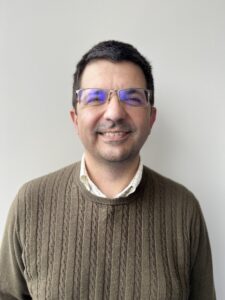The Spanish National Research Council State Agency (CSIC) is the largest public research organisation in Spain, the fourth-largest public research institution in the European Union and the sixth in the world.
Its aim is “the promotion, coordination, development and dissemination of multidisciplinary scientific and technological research to contribute to the advancement of knowledge and economic, social and cultural development, as well as the training of personnel and advice to public and private entities in these fields”.
For this purpose, it has more than 11,000 employees, of which almost 4,000 are research staff, distributed in its 121 research institutes throughout the Spanish territory, except the Spanish School of History and Archaeology in Rome (Italy).
The CSIC leads the scientific production of Spain, with an annual average of 13,000 publications in internationally renowned scientific journals, with a very high percentage of publications in frontline journals: more than 70 % of the total published articles correspond to high impact articles (Q1). Regarding Knowledge Transfer, the CSIC is the top institution in Spain in patent generation, with 85 patent applications in 2021 .
Furthermore, the CSIC has extensive experience managing research infrastructures. It actively participates in different infrastructures included in the European Strategy Forum on Research Infrastructures 9 (ESFRI) and provides services to the entire scientific community through the management of several Spanish Singular Scientific and Technological Infrastructures (ICTS) such as the Calar Alto astronomical observatory, Doñana biological reserve-station, the European Synchrotron Radiation Facility, the Hespérides oceanographic research vessel, the Integrated Clean Room of Microelectronics, the Spanish Antarctic base Juan Carlos I, the Max Von Laue-Paul Langevin Institute and the Sarmiento de Gamboa oceanographic vessel.
The Institute of Physics of Cantabria (IFCA) is a Joint Centre with the combined effort of two institutions, Spanish National Research Council (CSIC) and University of Cantabria (UC) oriented to perform research on basic science: to understand the components of nature, from elementary particles (Particle Physics) to the largest structures of the Universe (Astronomy and Space Science) as well as the complex collective behaviour of matter (Statistical and Non-linear Physics).
The CSIC has maintained a steadily grow in all its aspects since its creation in 1995, reaching its current size of about 80 people, with about 29 staff researchers. It produces yearly more than 200 publications in the best journals in the respective fields and has nearly 20 active projects, obtaining external funding of about 2.0M/year, more than 80% of the total budget.
Role of institution in the project
IFCA is involved in tasks 2.4 FAIR implementation support and 5.3 including directing subtask 5.3.5 Data FAIRification.
The group brings its experience in the project EOSC-Synergy including the developments on automated FAIR data evaluators implementing the Research Data Alliance FAIR compliance principles: (https://github.com/EOSC-synergy/FAIR_eva).
We also have experience in personal data protection and in particular in de-identification of DICOM objects.

